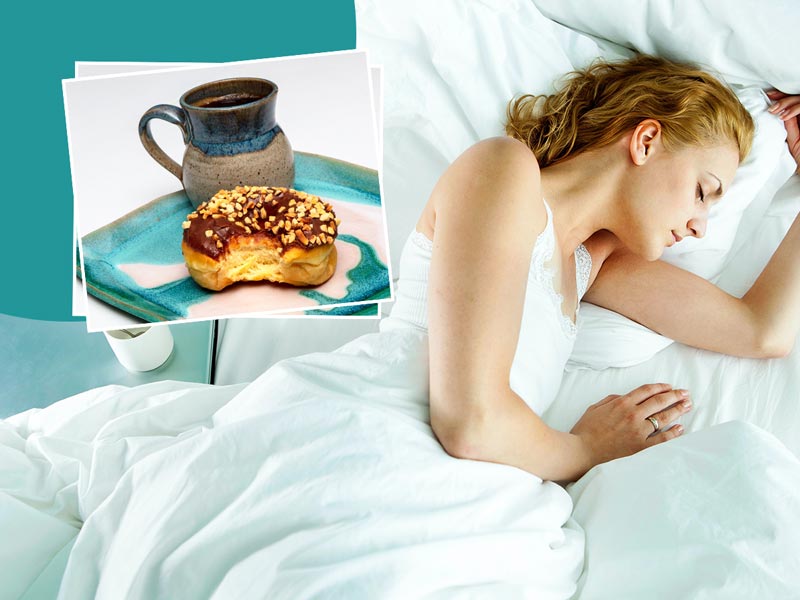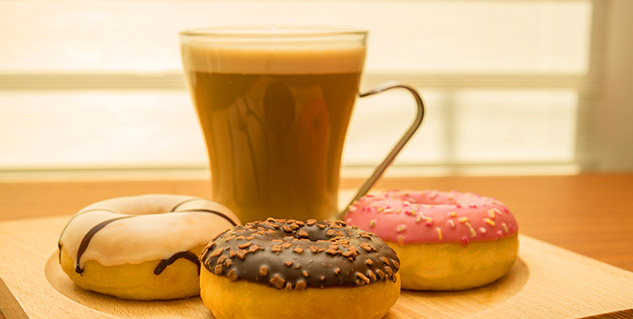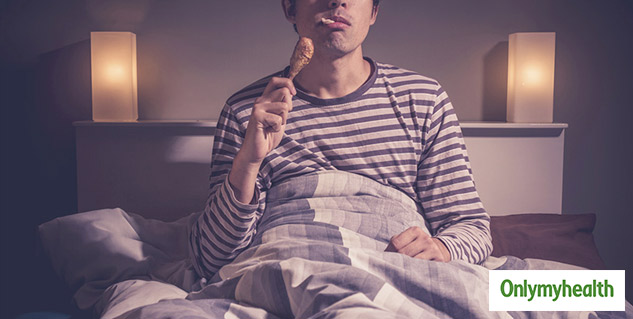
Getting a good night's sleep is essential for overall health and well-being. However, certain food choices before bedtime can interfere with your ability to fall asleep or stay asleep throughout the night.
Table of Content:-
Foods to Absolutely Avoid Before Bed
We spoke to our expert Dr Shweta Jaiswal, Senior Dietician - Sharda Hospital to shed some light on food options that you should avoid consuming before bedtime to promote better sleep quality and overall health. Here is what she shared with us.
1. Caffeine
Caffeine is a stimulant that can interfere with your body's natural sleep-wake cycle. Consuming caffeine before bedtime can make it difficult to fall asleep and may also lead to disrupted sleep patterns. While it's common knowledge to avoid coffee before bed, remember that caffeine is also present in tea, soda, energy drinks, and even chocolate. To promote better sleep, it's best to avoid consuming caffeinated beverages and snacks in the hours leading up to bedtime.

2. Spicy Foods
Spicy foods can cause discomfort and heartburn, especially when consumed close to bedtime. These foods can trigger acid reflux, leading to symptoms like indigestion and discomfort, which can make it challenging to get a restful night's sleep. If you enjoy spicy foods, try to consume them earlier in the day to allow your body enough time to digest them properly before bedtime.
Also Read: Eldest Daughter Syndrome: Understanding Causes and Management Tips
3. Fatty and Greasy Foods
Foods that are high in fat and grease can also disrupt your sleep. These foods take longer to digest, which can lead to discomfort and indigestion when consumed too close to bedtime. Additionally, fatty foods can increase the risk of acid reflux, further exacerbating sleep disturbances. Avoiding fried foods, heavy sauces, and fatty meats before bed can help promote better digestion and improve sleep quality.

4. Sugary Treats
Indulging in sugary treats before bedtime may seem comforting, but it can negatively impact your sleep quality. Consuming foods high in sugar can cause fluctuations in blood sugar levels, leading to energy crashes and difficulty falling asleep. Moreover, sugary snacks like candy, cookies, and pastries can provide a quick energy boost, making it harder for your body to relax and unwind before bedtime. Opt for healthier, low-sugar snacks like fruit, yoghurt, or nuts to satisfy your late-night cravings without disrupting your sleep.
Also Read: Expert Shares 9 Signs & Symptoms Of Protein Deficiency
5. Alcohol
While alcohol may initially make you feel drowsy, it can actually disrupt your sleep cycles and lead to poor-quality sleep. Alcohol interferes with the production of chemicals in the brain that regulate sleep, resulting in fragmented sleep and frequent awakenings throughout the night. Additionally, alcohol can worsen symptoms of sleep apnea and snoring, further impairing your ability to get a restful night's sleep. If you choose to drink alcohol, do so in moderation and avoid consuming it too close to bedtime to minimise its negative effects on sleep.
A Final Word
Making mindful food choices before bedtime can significantly impact your sleep quality and overall health. By avoiding caffeine, spicy foods, fatty and greasy foods, sugary treats, and alcohol before bed, you can create an environment conducive to restful sleep. Instead, opt for lighter, nutrient-rich snacks that promote relaxation and help prepare your body for a restorative night's sleep. Prioritising good sleep hygiene and making smart food choices can lead to improved sleep quality and better overall health in the long run.
Also watch this video
How we keep this article up to date:
We work with experts and keep a close eye on the latest in health and wellness. Whenever there is a new research or helpful information, we update our articles with accurate and useful advice.
Current Version